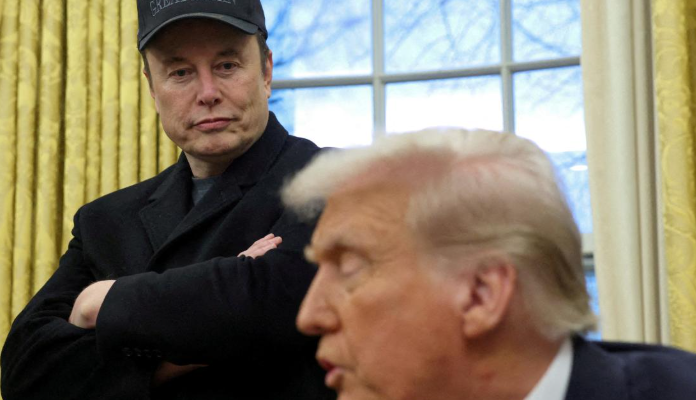Judge won’t block Musk’s records access because states couldn’t show ‘irreparable harm’
WASHINGTON – A federal judge on Tuesday refused to block Elon Musk’s access to sensitive records at several federal departments after another judge limited the Department of Government Efficiency’s access to the Treasury Department.
U.S. District Judge Tanya Chutkan held hearings Friday and Monday on the request from 14 states, which argued that Musk was exercising unchecked power to gain access to sensitive information, terminate personnel and end contracts worth hundreds of millions of dollars.
But Chutkan ruled that the states hadn’t shown they would suffer “imminent, irreparable harm” unless she blocked DOGE.
“The court is aware that DOGE’s unpredictable actions have resulted in considerable uncertainty and confusion for Plaintiffs and many of their agencies and residents,” Chutkan wrote. “But the ‘possibility’ that Defendants may take actions that irreparably harm Plaintiffs ‘is not enough.’”
In the case led by New Mexico, 14 states argued that Musk’s “unchecked power” over federal agencies violates the Appointments Clause in the U.S. Constitution. They said that Musk took over a newly established agency without following the protocol outlined in founding documents.
The Appointments Clause requires Congress to establish an office before the president can fill it and states that the Senate must confirm a nominee to an office created by law.
The states sought to prevent Musk’s team from accessing, copying or transferring data from the Office of Personnel Management and the Departments of Education, Labor, Health and Human Services, Energy, Transportation and Commerce.
The states sought an emergency temporary restraining order to prevent Musk and DOGE from canceling government contracts or taking steps to dismantle agencies created by law.
A New Mexico official said if the Labor Department’s sensitive data was compromised, it could leave the state vulnerable to embezzlement, cyber theft and ransom attacks. A Washington state official said if DOGE canceled federal-state contracts it would hurt the state’s ability to meet its legal commitments to residents. A Connecticut official said DOGE could potentially impact the state’s Department of Social Services funding.
“The sweeping authority now vested in a single unelected and unconfirmed individual is antithetical to the nation’s entire constitutional structure,” the states argued.
Joshua Fisher, director of the Office of Administration, submitted a statement that despite Musk’s announcement that he was heading DOGE, he was a special government employee in the White House.
Musk is merely one adviser to Trump and doesn’t control DOGE’s work or the termination of employees at specific agencies, Fisher said.
Another judge in New York, U.S. District Judge Jeannette Vargas on Friday extended the temporary block against the DOGE team looking for government waste, from gaining access to confidential government information in the Treasury Department’s computer systems.
New York Attorney General Letitia James led a lawsuit from 19 states seeking to continue blocking DOGE’s access.
But a third judge, U.S. District Judge John Bates in Washington, D.C., who heard complaints from four unions − the AFL-CIO; the American Federation of Government Employees; the American Federation of State, County and Municipal Employees and the Service Employees International Union − also refused to block DOGE’s access because the unions couldn’t show they were harmed.




